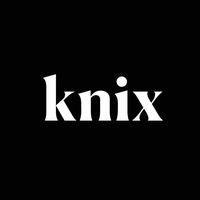Retailers Race Against Tariffs: A Marketing Strategy in Crisis Mode
May 6, 2025, 6:19 am

Location: Canada, Ontario, Old Toronto
Employees: 51-200
Founded date: 2012
Total raised: $58.7M
The retail landscape is shifting. A storm brews on the horizon, and retailers are scrambling to adapt. The catalyst? Tariffs. As President Trump’s trade war looms, brands are using it as a marketing tool. They urge consumers to buy now, before prices soar. It’s a race against time, and the stakes are high.
Retailers like Beis, Bare Necessities, and Fashion Nova are not just selling products; they’re selling urgency. They paint a picture of impending doom, where prices will rise and shelves may go bare. The message is clear: buy now or pay later. This strategy is not just clever; it’s necessary. With consumer spending expected to dip, brands are looking to shore up their finances. They know that every dollar counts.
The retail industry is in crisis mode. The uncertainty surrounding tariffs creates a fog that makes planning nearly impossible. Companies importing goods from China face staggering duties—up to 145%. Some have paused orders, while others scramble to stock up from alternative sources in Vietnam and Cambodia. The clock is ticking, and the pressure is mounting.
The impact of tariffs varies across the retail spectrum. For some, it’s a minor inconvenience. For others, it’s an existential threat. Brands that thrive on discretionary spending are particularly vulnerable. They sell products that consumers can live without. When prices rise, shoppers may think twice. The stakes are high, and the pressure is palpable.
Take Bare Necessities, for example. They launched a “pre-tariff sale,” offering discounts of up to 30%. Their message is straightforward: stock up before prices hit the roof. It’s a gamble, but one that could pay off. Retailers are betting that consumers will respond to the urgency. They’re banking on fear of missing out.
Then there’s Beis, a luggage company that took a different approach. Instead of outright discounts, they opted for humor. Their message to consumers was candid: “This tariff situation is a complete dumpster fire.” They acknowledge the chaos while encouraging shoppers to act quickly. It’s a clever way to diffuse tension. By using humor, they sidestep the political quagmire surrounding tariffs. They keep the focus on the consumer, not the controversy.
This strategy is not without risks. Retailers must balance the need for immediate sales with the long-term health of their brand. Offering steep discounts can erode margins. Yet, in a climate of uncertainty, it may be the only option. Experts suggest that retailers should do everything possible to drive demand now. The future is unpredictable, and a bird in the hand is worth two in the bush.
Smaller brands feel the pinch more acutely. They lack the global supply chains of giants like Target or Walmart. Their options are limited, and the stakes are higher. For them, boosting cash flow before demand falls could be a matter of survival. Tariffs will impact every business, but smaller companies may struggle to adapt.
Interestingly, pre-tariff promotions may have contributed to better-than-expected spending data in March. Shoppers, aware of rising prices, are making purchases sooner rather than later. Big-ticket items, like cars, are flying off the shelves. Consumers are responding to the urgency, and retailers are capitalizing on it.
The retail landscape is a chess game. Brands must anticipate moves and counter-moves. They’re not just selling products; they’re selling a narrative. The narrative of urgency. The narrative of scarcity. The narrative of impending price hikes. It’s a powerful story, and one that resonates with consumers.
As the stock market reacts to these developments, investors are watching closely. U.S. stock futures dipped recently, signaling caution. The S&P 500 had a strong run, but uncertainty looms. Traders are keenly aware of the potential fallout from tariffs. The Federal Reserve’s upcoming policy meeting will be closely scrutinized for insights into the economy’s health.
In the midst of this chaos, Warren Buffett announced his retirement as CEO of Berkshire Hathaway. His departure marks the end of an era. Buffett has been a steady hand in turbulent times. His insights on tariffs and trade resonate deeply. He criticized tariffs without naming names, suggesting that trade should not be a weapon. His words carry weight, and investors are listening.
As retailers navigate this turbulent landscape, one thing is clear: the race against tariffs is on. Brands are leveraging urgency to drive sales. They’re using humor to connect with consumers. They’re adapting to a rapidly changing environment. The stakes are high, and the outcome is uncertain. In this game of retail chess, every move counts. The question remains: will consumers respond to the call to action, or will they hold back? Only time will tell.
Retailers like Beis, Bare Necessities, and Fashion Nova are not just selling products; they’re selling urgency. They paint a picture of impending doom, where prices will rise and shelves may go bare. The message is clear: buy now or pay later. This strategy is not just clever; it’s necessary. With consumer spending expected to dip, brands are looking to shore up their finances. They know that every dollar counts.
The retail industry is in crisis mode. The uncertainty surrounding tariffs creates a fog that makes planning nearly impossible. Companies importing goods from China face staggering duties—up to 145%. Some have paused orders, while others scramble to stock up from alternative sources in Vietnam and Cambodia. The clock is ticking, and the pressure is mounting.
The impact of tariffs varies across the retail spectrum. For some, it’s a minor inconvenience. For others, it’s an existential threat. Brands that thrive on discretionary spending are particularly vulnerable. They sell products that consumers can live without. When prices rise, shoppers may think twice. The stakes are high, and the pressure is palpable.
Take Bare Necessities, for example. They launched a “pre-tariff sale,” offering discounts of up to 30%. Their message is straightforward: stock up before prices hit the roof. It’s a gamble, but one that could pay off. Retailers are betting that consumers will respond to the urgency. They’re banking on fear of missing out.
Then there’s Beis, a luggage company that took a different approach. Instead of outright discounts, they opted for humor. Their message to consumers was candid: “This tariff situation is a complete dumpster fire.” They acknowledge the chaos while encouraging shoppers to act quickly. It’s a clever way to diffuse tension. By using humor, they sidestep the political quagmire surrounding tariffs. They keep the focus on the consumer, not the controversy.
This strategy is not without risks. Retailers must balance the need for immediate sales with the long-term health of their brand. Offering steep discounts can erode margins. Yet, in a climate of uncertainty, it may be the only option. Experts suggest that retailers should do everything possible to drive demand now. The future is unpredictable, and a bird in the hand is worth two in the bush.
Smaller brands feel the pinch more acutely. They lack the global supply chains of giants like Target or Walmart. Their options are limited, and the stakes are higher. For them, boosting cash flow before demand falls could be a matter of survival. Tariffs will impact every business, but smaller companies may struggle to adapt.
Interestingly, pre-tariff promotions may have contributed to better-than-expected spending data in March. Shoppers, aware of rising prices, are making purchases sooner rather than later. Big-ticket items, like cars, are flying off the shelves. Consumers are responding to the urgency, and retailers are capitalizing on it.
The retail landscape is a chess game. Brands must anticipate moves and counter-moves. They’re not just selling products; they’re selling a narrative. The narrative of urgency. The narrative of scarcity. The narrative of impending price hikes. It’s a powerful story, and one that resonates with consumers.
As the stock market reacts to these developments, investors are watching closely. U.S. stock futures dipped recently, signaling caution. The S&P 500 had a strong run, but uncertainty looms. Traders are keenly aware of the potential fallout from tariffs. The Federal Reserve’s upcoming policy meeting will be closely scrutinized for insights into the economy’s health.
In the midst of this chaos, Warren Buffett announced his retirement as CEO of Berkshire Hathaway. His departure marks the end of an era. Buffett has been a steady hand in turbulent times. His insights on tariffs and trade resonate deeply. He criticized tariffs without naming names, suggesting that trade should not be a weapon. His words carry weight, and investors are listening.
As retailers navigate this turbulent landscape, one thing is clear: the race against tariffs is on. Brands are leveraging urgency to drive sales. They’re using humor to connect with consumers. They’re adapting to a rapidly changing environment. The stakes are high, and the outcome is uncertain. In this game of retail chess, every move counts. The question remains: will consumers respond to the call to action, or will they hold back? Only time will tell.
